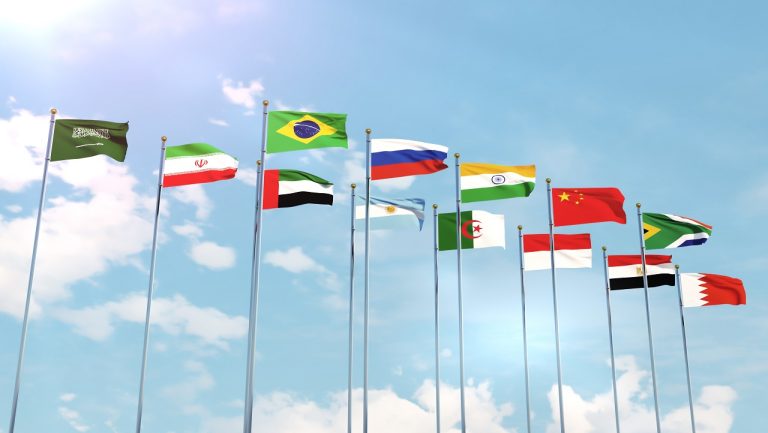China Faces Opposition to Rapid BRICS Expansion From India and Brazil, Report

BRICS member states India and Brazil stand in the way of China’s bid to quickly expand the bloc, unveiled a media report. The two nations have different reasons to have reservations about Beijing’s plan to soon increase the organization’s geopolitical influence while they both seem to want to slow down the enlargement, sources have indicated.
India and Brazil Push Back Against China’s Attempt to Expand BRICS, Officials Say
Officials familiar with the discussions on the future composition of the BRICS bloc of developing economies have revealed that India and Brazil are pushing back against a Chinese bid to rapidly expand the group, which currently also includes Russia and South Africa.
According to a report by Bloomberg, New Delhi and Brasília have raised their objections in preparatory talks for the organization’s upcoming summit in Johannesburg. During the forum on Aug. 22 – 24, the five nations will discuss the induction of new members.
China has repeatedly lobbied for expansion during those meetings, said the officials who chose to remain anonymous. Indonesia and Saudi Arabia have been mentioned as candidates while dozens of other nations are either applying or showing interest in joining.
The large number of potential members has fueled concerns in the West that the alliance may become a counterweight to the U.S. and the EU. Brazil hopes to avoid enlargement partly because of such worries while India seeks strict rules for the association of other countries without formally expanding BRICS. Both want to discuss granting observer status to candidates at the summit, the quoted officials added.
The hosting nation, South Africa, supports considering different membership options but doesn’t necessarily oppose expansion, two of the officials noted. “The BRICS leaders meeting last year authorized the expansion of membership, adding more members to BRICS is the political consensus of the five BRICS countries,” China’s foreign ministry pointed out in a statement.
Decisions in Johannesburg Will Require Consensus Among Members
Russia does not hold a firm position on expanding BRICS, according to Fyodor Lukyanov, head of the Council on Foreign and Defense Policy which advises the Kremlin’s administration. Commenting on the matter, he elaborated:
It’s broadly in favor of BRICS expansion, but without any huge enthusiasm. It’s following the others’ lead. We won’t block any decision.
And any decision at the August summit will require consensus among the current member states who meet at a time of heightened tensions between Washington and Beijing as well as a geopolitical clash with Russia with unprecedented Western sanctions imposed over its invasion of Ukraine.
Last week, the office of South Africa’s president Cyril Ramaphosa announced that his Russian counterpart, Vladimir Putin, will not attend the meeting in person as a result of an indictment and an arrest warrant issued for him by the International Criminal Court (ICC) over the Ukraine war.
The report also revealed that following India’s opposition to China’s push for expansion, rules for admission were drafted and these will be discussed at the leaders’ summit next month, according to two Indian officials.
While trying avoid confrontation in BRICS, Brazil is working to resist Chinese pressure to make it an antagonistic body that challenges the G7, a Brazilian official said. The country is proposing to establish “observer” and “partner country” categories for candidates that will precede full membership.
Do you expect BRICS to invite new members at the summit in Johannesburg? Tell us in the comments section below.